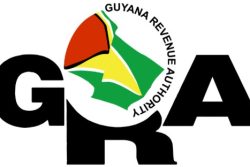From in front, be clear: I love a lot of things about America. I’ve mentioned some of them before, no need to make out the list again. But it peeves me no end to encounter Americans who while being rather myopic about other cultures are nonetheless quick to criticize how other people behave, or bring up their children, or, for heaven’s sake, even speak. That last one is especially irritating, perhaps because it’s so fundamental. In my time in playing for audiences in their homeland, and in interacting with them when they came as tourists to the Cayman Islands, I have frequently run into this attitude from Americans which often takes the form of a putdown of the native.
Their position is that people who don’t speak as Americans do are basically comedy material, need to be straightened out, and the Yanks are more than happy to do it. Just recently again one of them was laughing at my pronunciation of the famous Heineken brew, chortling. “Bear? You get those in a zoo; the thing you drink is a beeeer.” He was almost bent double laughing; I didn’t find it one bit funny; he was actually maligning my dialect, and I told him so citing some examples of his own mangling of the Queen’s English.

The distinction is apparent only to the American ear. I can’t identify it, and no Canadian I’ve spoken to can hear it either.
But the Americans are adamant, and the mocking laughter continues. And even if the distinction exists, the fact is that every English-speaking nation on earth employs different pronunciations for certain words. (Check the Australian and New Zealand sports commentators on television who pronounce “ten” as “tin”.) Variation in pronunciation is not evidence that the speaker comes from a nation of dummies. After all, the very Americans who criticize Caribbean speakers are themselves mangling “interested” into “innerested”, and “nuclear” into “nu-keel-ar”.” Some of the most prominent people in their society, including one of their presidents, George Bush, speak that way. (Incidentally, in a document where I referred to the errant pronunciation heard in America, my spell check challenged the spelling of “nucelar” (“not in dictionary”) into “nuclear” before I sent it, so at least the computer’s Word spell check is on the ball.)
I recall hearing the eminent Donald Rumsfeld, former US Secretary of Defense, who was officiating at a ceremony and referred to a military medal as a “momento”, clearly not knowing the correct word is “memento”, and there is of course the frequent reference to “criteria” as singular (I guess the “a” at the end confuses them) when in fact the singular is “criterion”. Similarly, our American friends are also frequently confused between the singular “phenomenon” and the plural “phenomena” and seem to use them interchangeably; perhaps, the “a” at the end again suggests to them that it’s “just one”.
While I’m at it, a particular peeve of mine is this frequent American contention that Caribbean people pronounce the word “man” as “mon”. It’s a complete waste of time to point out to them that nobody in the Caribbean says “mon”, except perhaps the ones among us who are about to migrate and already trying to “talk Yankee”. Often it only eggs them on to prove you wrong: “Oh, you don’t say mon? I never knew that mon. Thanks for telling me mon.” And then to his friend, “You heard what the mon said? They don’t say mon.” Arms around each other; gales of laughter.
The main thing is to not let it pass – after all the way we “speak” is one of the essentials of who we are – and so I always challenge them on it. The “mon” controversy is one. Every time you hear the jibe, or see the word reproduced on those “momentos” Rumsfeld referred to – T-shirt, coffee mug, wall plaque – let the folks know how idiotic it is. Indeed, let them know that we are laughing at them. Cite the “innerested” example, and the “nu-keel-ar”. And when the occasion calls for it, we should take the time to politely tell these folks that in the Caribbean region, we are bi-lingual: we speak Standard English, several of us mellifluously so, and we also speak a vivid, descriptive dialect that may sound strange to foreigners but is communication gold for us.
Recently, I noticed on a US TV cooking show, the host was preparing a Caribbean dish and repeatedly referred to that thing that looks like a banana, as “plantane”. I pointed it out to an American here: “You don’t take “fountain” and turn it into “fountane”, so why do you take “plantain” and turn it into “plantane”? To give him his due, he paused and said, “Hmmm… I never thought about that.”
Furthermore, when the idiocy persists, we can also go on the offensive; the next time some dude from Minnesota makes a comic remark about the way we speak, put a smile on your face and inform the gentleman, “Is anodda language, bannuh. Yuh gun bruk yuh brains tryin fuh undastan um.” then simply walk away, leaving him to decipher what he just heard.






